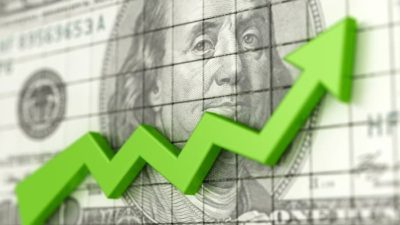The Vanguard Australian Shares Index ETF (ASX: VAS) and the Vanguard MSCI Index International Shares ETF (ASX: VGS) are two of the most popular exchange-traded funds (ETFs) on the ASX. Both are index funds, but that's where the similarities end.
So today, let's compare these two popular ETFs, and what they can offer ASX investors going forward. Can we decide which is the best ASX ETF?
Although both of these ETFs are popular with ASX investors, it's the Vanguard Australian Shares ETF that is by far the most dominant. Indeed, it is the top ETF in Australia, with more than $12 billion in assets under management. That contrasts with the Vanguard International Shares ETF with just under $5.8 billion.
This probably reflects ASX investors' bias towards the local share market.
What sets these two popular ASX ETFs apart?
The VAS ETF is an ASX-only fund, tracking the largest 300 shares listed on the Australian stock exchange. The VGS ETF, on the other hand, invests in no ASX shares. Instead, it holds a massive basket of more than 1,500 individual shares that hail from more than 20 advanced economies around the world. These include Canada, the United Kingdom, France, Japan, Germany, Sweden, Israel, Norway, Hong Kong, and Singapore.
But by far the most dominant country in this ETF's portfolio is the United States. US shares make up a whopping 69.1% of VGS's weighted share portfolio.
Here are the Vanguard Australian Shares ETF's top ten holdings, as of 30 April:
- BHP Group Ltd (ASX: BHP)
- Commonwealth Bank of Australia (ASX: CBA)
- CSL Ltd (ASX: CSL)
- National Australia Bank Ltd (ASX: NAB)
- Westpac Banking Corp (ASX: WBC)
- ANZ Group Holdings Ltd (ASX: ANZ)
- Macquarie Group Ltd (ASX: MQG)
- Woodside Energy Group Ltd (ASX: WDS)
- Wesfarmers Ltd (ASX: WES)
- Telstra Group Ltd (ASX: TLS)
See how this contrasts with the Vanguard International Shares ETF's top ten:
- Apple Inc (NASDAQ: AAPL)
- Microsoft Corp (NASDAQ: MSFT)
- Amazon.com Inc (NASDAQ: AMZN)
- NVIDIA Corp (NASDAQ: NVDA)
- Alphabet Inc (NASDAQ: GOOG)(NASDAQ: GOOGL)
- Meta Platforms Inc (NASDAQ: META)
- Exxon Mobil Corp (NYSE: XOM)
- UnitedHealth Group Inc (NYSE: UNH)
- Tesla Inc (NASDAQ: TSLA)
- Johnson & Johnson (NYSE: JNJ)
All ten of these shares are American companies. In fact, the first non-US share you will come across in VGS's portfolio is Swiss food giant Nestle in 15th spot.
Best ASX ETFs: VGS or VAS?
Here are some more comparisons between these two ETFs:
| VAS | VGS | |
| Annual fee | 0.1% per annum | 0.18% per annum |
| Number of individual portfolio holdings | 303 | 1,471 |
| Dividend yield (at time of writing) | 5.54% | 1.38% |
| Franking credits? | Yes | No |
| Dividend distribution frequency | Quarterly | Quarterly |
| 3 most dominant sectors | Financials (27.2%), Materials (24.2%), Health Care (10.3%) | Information Technology (20.4%), Financials (14.8%), Health Care (13.7%) |
| Countries represented | 1 | 22 |
So you can see just how much these two ETFs differ in terms of scope and scale.
But let's get to the meat and potatoes, and compare the performances of these two funds:
| VAS | VGS | |
| 1-year performance (to 30 April) | 2.09% | 11.24% |
| 3-year performance average | 14% | 12.78% |
| 5-year performance average | 8.22% | 11.2% |
Thus, it's clear that the Vanguard International Shares ETF has convincingly outperformed the Australian Shares ETF over one and five years. VAS does come out on top over three years though, although this might be a little distorted thanks to the COVID crash of 2020.
Does that better long-term performance make VGS the best ETF automatically? Well, not necessarily. These two ETFs represent different asset classes. Sure, the past five years have been far kinder to international shares than ASX shares. But this probably comes down to a few factors.
The US tech stocks that dominate VGS's portfolio have had spectacular runs over the past five years, whereas our big four banks have been a little more muted. The Aussie dollar has also been dropping in value over the past five years fairly consistently, so this also boosts the performance of international shares against ASX shares when measured in our currency.
If the dollar spends the next five years appreciating against the greenback, and our local share market delivers a solid performance, then we could well see VAS beat out VGS going forward.
Not quite apples-to-apples
VAS is certainly the winner when it comes to providing income though. Its current yield of 5.54% looks laughably good against VGS's more miserly 1.38%. VAS's dividend distributions also come with franking credits, whose significant benefits don't show up in these performance figures. Its fee is also a lot cheaper at 0.1% per annum, against VGS's 0.18%.
But then again, the VGS ETF is far better diversified, with its largest sector coming in with a weighting of 20.4%, against VAS's financials at 27.2%.
And there's no denying that the calibre of VGS's top holdings, the likes of Apple and Amazon, generate a lot of sales over our top companies like CBA and BHP.
So, yes, the Vanguard International Shares ETF has been the better fund in recent history in terms of raw, long-term performance. But that doesn't make it the best investment forevermore. Perhaps the wisest investors will get the best of both worlds by building a portfolio that houses both Australian and international shares.









